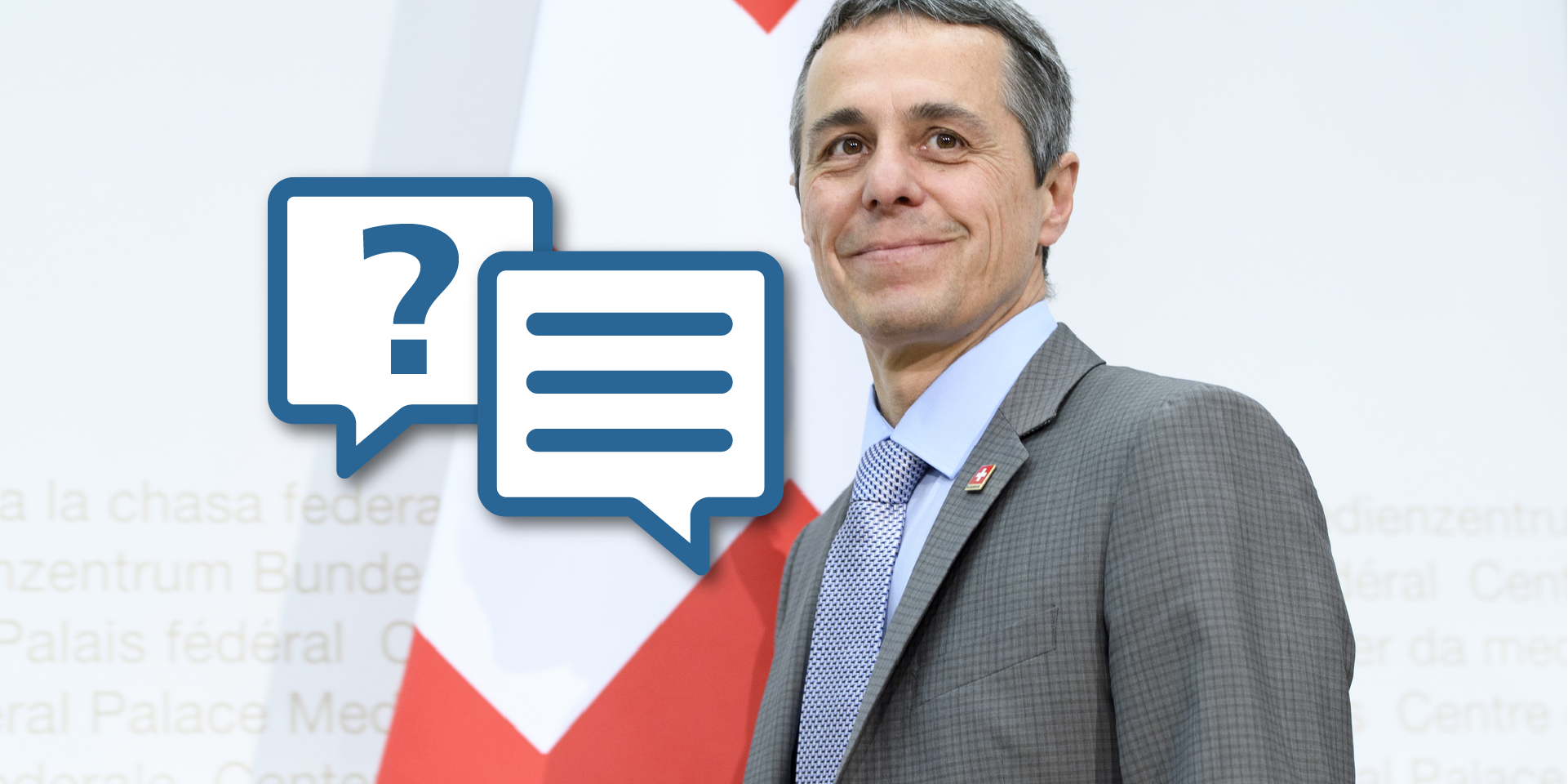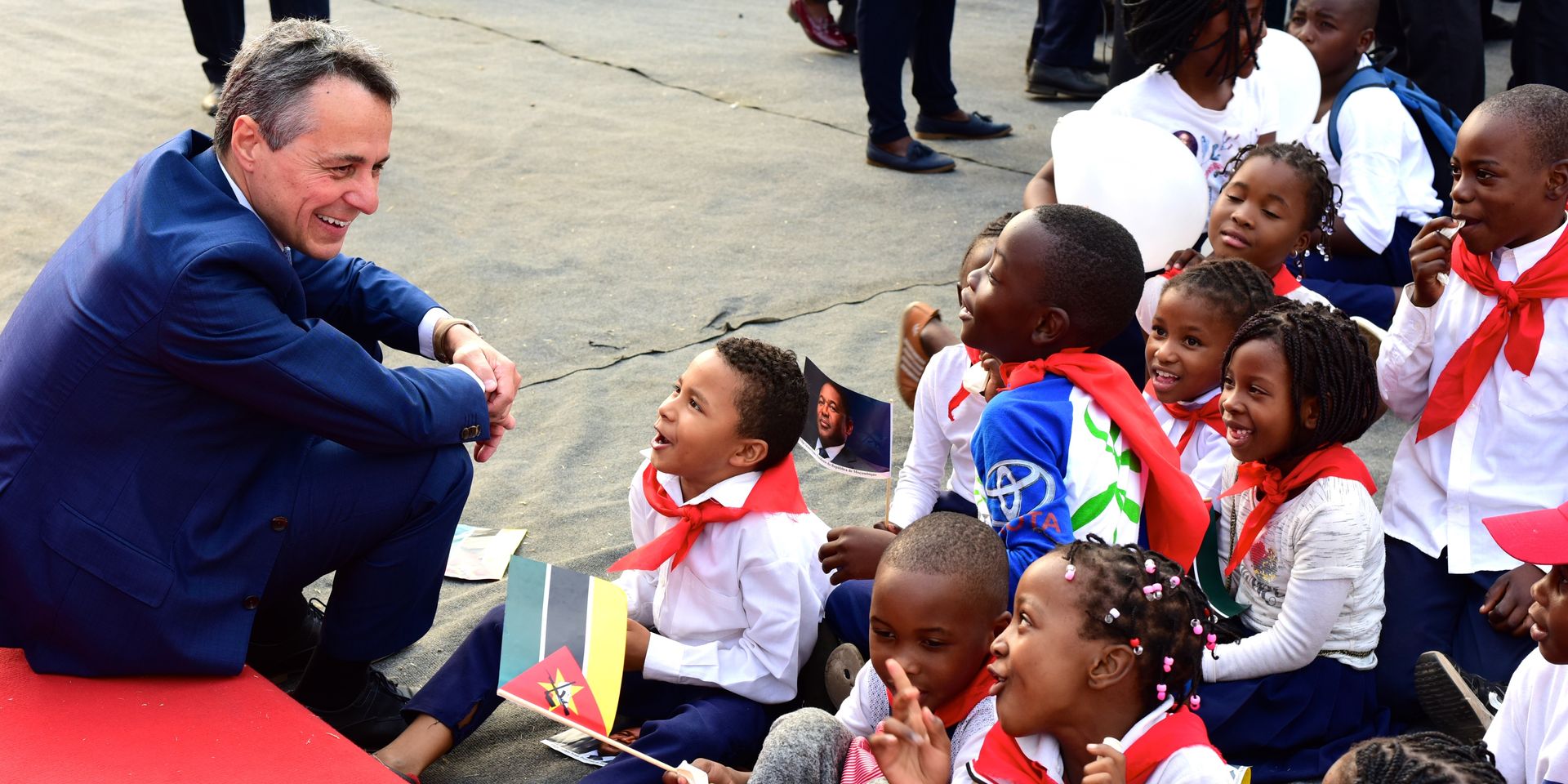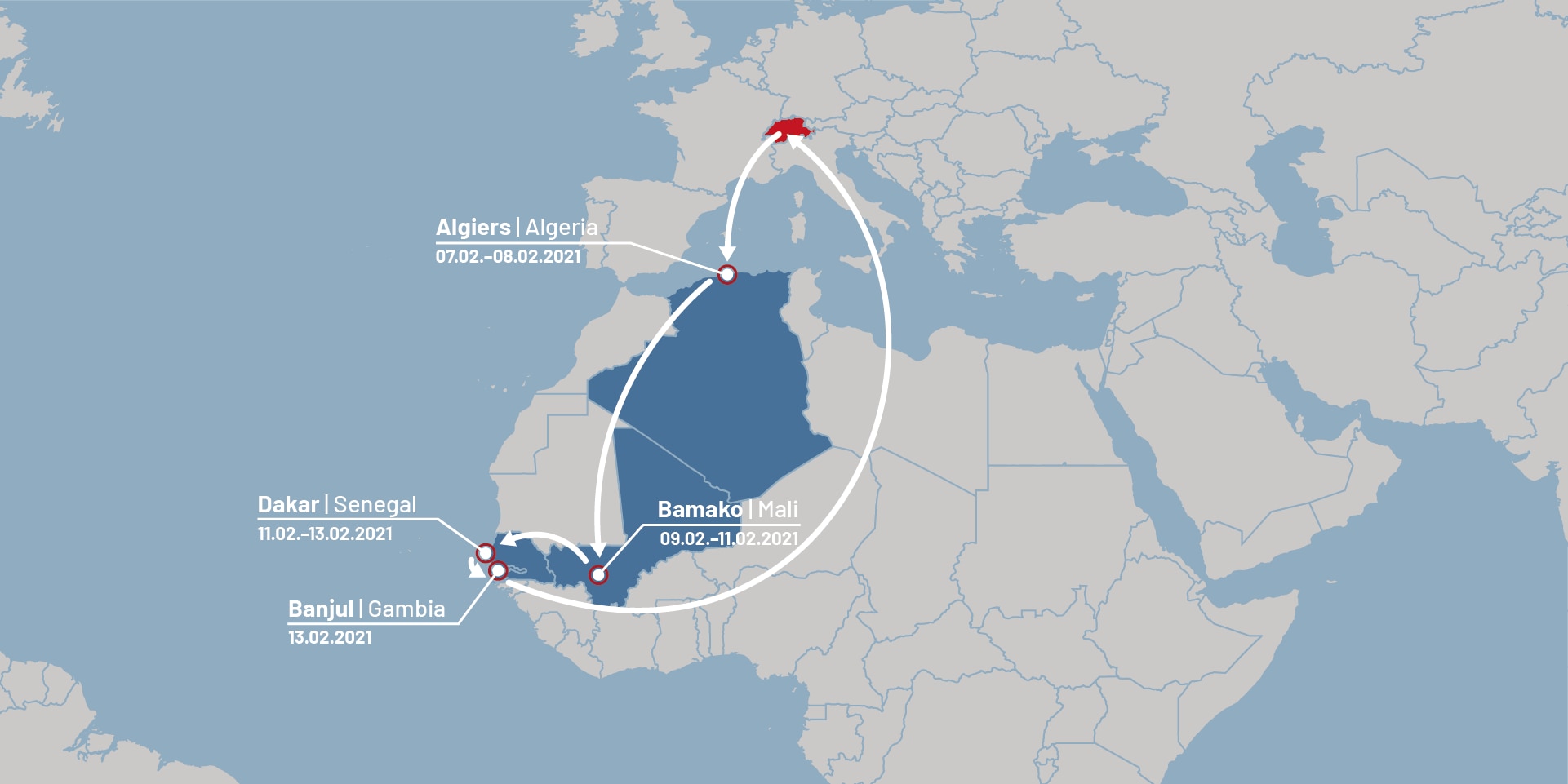"Switzerland must know where it wants to be headed in the world"
In this interview with the international news platform swissinfo.ch, Federal Councillor Ignazio Cassis, head of the FDFA, talks about the upcoming e-ID referendum, the importance of a strong external network and Switzerland's foreign policy strategy. Mr Cassis insists that it is essential for Switzerland to be clear about what it wants to accomplish on the international stage and what it needs to do to best achieve its goals.

In this interview with the news platform swissinfo.ch, Federal Councillor Ignazio Cassis talks about the e-ID referendum, the external network and Switzerland's foreign policy strategy. © FDFA
Swissinfo (swissinfo.ch) is the international news platform of the Swiss Broadcasting Corporation (SRG SSR). Swissinfo publishes news and feature articles about Switzerland and serves as a link between the Swiss community abroad and their home country. No matter where they may live in the world, Swiss citizens are interested in social and cultural developments back home and are also key participants in Swiss political life.
The Swiss abroad, who are often referred to as the 'Fifth Switzerland' in Switzerland's national languages, play an important role in Swiss political discourse, notes Cassis.
E-ID for Swiss citizens
A popular vote on the Federal Act on Electronic Identification Services (e-ID Act), to be held on 7 March 2021, is attracting a great deal of interest among Swiss nationals abroad. The act will provide a legal basis for a federally recognised electronic identity, the e-ID. The Federal Council, Parliament, the cantons and numerous associations are backing the e-ID Act. The e-ID is expected to be especially useful for Swiss citizens living abroad.
"It's all the more important for the Swiss abroad to vote Yes, as they want high-quality, customer-friendly consular services. Customer-friendly means that Swiss citizens abroad will be able to save themselves a two-hour drive to show their ID at a counter and will no longer have to mail in their passport or a passport copy. An e-ID would be an ideal way to ensure easy and secure identification for consular services," notes Cassis.
Strengthening the external network
Mr Cassis also spoke about the announcement made by the FDFA last year that it was planning to increase the number of staff deployed in the representations abroad. "The COVID-19 crisis highlighted the importance of a strong external network to assist Swiss citizens in emergency situations. Small representations can quickly be stretched to their limits in a global crisis such as this. Although our head office in Bern has the option of deploying additional personnel abroad when necessary, certain representations need additional consular and diplomatic staff on a permanent basis," explains Cassis.
"Our core business is not the FDFA's head office in Bern, but our representations abroad," said Cassis, adding that personnel resources in the external network would be increased through staff transfers, not through a personnel expansion.
Switzerland's first Sub-Saharan Africa Strategy
Cassis also took stock of his recent six-day trip to Algeria, Mali, Senegal and The Gambia, where he briefed his counterparts about Switzerland's new Sub-Saharan Africa Strategy. "There is enormous respect in these four countries for the fact that Switzerland has its own strategy on Africa. It's worth noting that this is Switzerland's first Africa strategy; that's to say a vision that can be translated into specific objectives. These objectives translate into measures, and the results of these measures can be measured against the objectives.
What applies to sub-Saharan Africa is equally true of Swiss foreign policy across the board. "Switzerland must know where it wants to be headed in the world. That's precisely why we have elaborated geographical and thematic strategies," explains Cassis. The Foreign Policy Strategy 2020–23 sets out the main lines of action and priorities of Swiss foreign policy, and the geographical and thematic follow-up strategies flesh out the steps to be taken in specific priority regions and areas. "This is a proactive foreign policy, a fact I consider to be extremely important.


